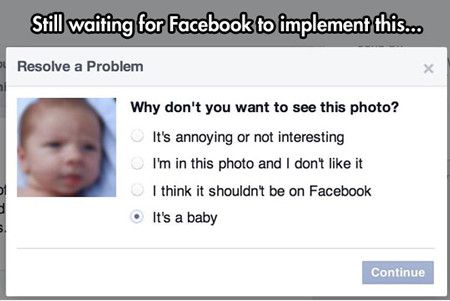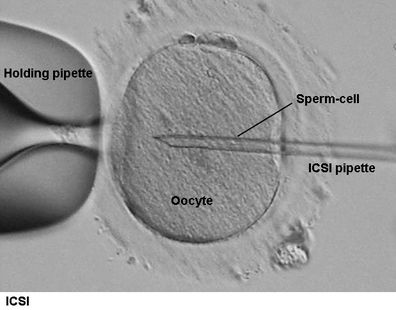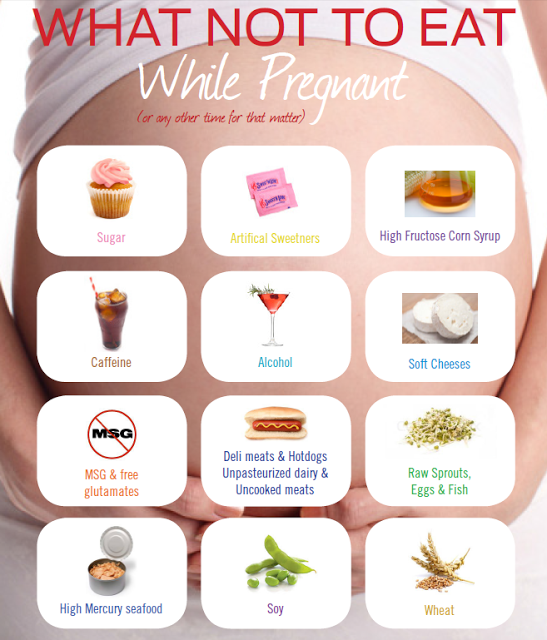As a scientist, I try to approach everything in life from a rational, skeptical point of view, so it has been interesting to enter the world of conception and pregnancy and to begin to get a glimpse of the future world of parenting. “Interesting” not only because of the pseudo-science and outright superstition around every corner, but because I have found that despite all my training, it is almost impossible to stay fully rational about this stuff.
The first taste came when we started trying to conceive. We were just about as ready as any couple can possibly be: secure jobs, a nice house in a nice town, good financial situation, two dogs (aka imitation infants), etc. That was two years ago. Erin is 19 weeks pregnant right now, so if you do the math you’ll see that it took us a while. Everyone drills into your head that it’s so easy to accidentally get pregnant that you assume that as soon as birth control stops, it’s only a matter of months before there’s a baby on the way. That’s not how it worked out for us.
We started trying, and nothing happened. Months passed and Erin had not yet “fallen pregnant” (a term which I have learned to hate – as if getting pregnant is as easy and accidental as falling off a log). Meanwhile, our Facebook feeds were a parade of pregnancy announcements, baby bump pictures, birth announcements, and baby pictures, mixed in with self-righteous posts about choosing not to have kids. We tried to be happy for our friends and their growing families (or their choice not to do something we wanted so desperately), but as time went on, each adorable baby seemed to be less a promise of things to come and more of a reminder of our own failings.

We got tested. Erin’s came back fine, mine did not. I didn’t realize how much of my identity I had based upon the idea that someday I would raise a family until suddenly I was staring at a test result that said I was unlikely to be able to do it. The results had a terse single-sentence note from my doctor, not even explaining any of the test results, just referring me to a reproductive specialist. Faced with such a result, it felt like the universe’s way of saying “you are failing at the primary purpose of your existence”. It felt like a judgement. My life has been so fortunate and easy in every other respect, maybe this was karma: some way to balance out all of that privilege. Some cruel trick played by the Fates to even the score.
Of course, none of that makes any sense, but that doesn’t matter to my irrational brain. Ironically, I think my skeptical nature actually led me down the path to these sorts of irrational thoughts. I put so much emphasis on having and raising children as a part of my life precisely because I do not believe in any afterlife or higher power. Without the comforting promise of an afterlife or a divine plan, there is a lot of self-imposed pressure to do something with my life that will last after I’m gone, and the easiest way to do that is to pass on my genes to offspring and to rear those offspring to be good people.
Rationally I know how ridiculous it is to anthropomorphize the universe. To ascribe motives to it, to think that somehow bad luck makes me a failure, or that this is some way to balance out previous good fortune. The luck of being a white straight male in a society that values those traits has nothing to do with misfortune of having a slight hormonal imbalance that impacts fertility. These variables are uncorrelated, orthogonal, independent. But when you want something so badly and have so little control over whether you get it, the natural response is not logical well-reasoned thought. The natural response is seek out some reason for things to have happened the way they did, because the alternative of an indifferent, random universe that is completely out of your control is anathema.
My other immediate response to getting the test result back was to seek out information. Some people get freaked out by medical jargon and technical language. I’m comforted by it. Something is wrong? I want to know everything I can about it. I can confidently say that I now know more about male (in)fertility than most of the population. Hell, more than some doctors. The extremely supportive infertility communities on Reddit were sanity savers. We live in a society where fertility is a taboo subject (thanks, religion!) which makes it really awkward to talk about this stuff. I didn’t learn that many men in my family have had fertility issues until I finally told my parents about the trouble we were having, and that wasn’t until months after I got those first results and we started to see a specialist in Phoenix.

Luckily, we didn’t have to resort to IVF+ICSI.
In the initial panic and shame after that first test result (made worse because it had to be kept secret) the ability to find a group of people online going through the same difficulties, and to speak candidly and anonymously with them, was tremendously valuable. It was also very comforting to see how science-positive the people on the infertility boards were. It makes sense: many of the people on those boards had much worse diagnoses than I did, and so their only recourse is in-vitro fertilization (IVF), often using intra-cytoplasmic sperm injection (ICSI) which basically involves injecting a single sperm (sometimes surgically extracted!) into a single egg. These people are depending on cutting-edge science to be able to have children.
But at the same time, there was inevitably a strong undercurrent of pseudoscience in the infertility communities, especially if I dared to stray from the Reddit boards to elsewhere on the internet. Even as people complained about friends and family members saying completely nonsensical and often hurtful things like “just relax and it will happen” and “everything happens for a reason” they would, in the next sentence, talk about how they are looking into homeopathy or aromatherapy or, most of all, acupuncture. I’m sorry, but having a stranger stick you full of needles is not going to get you pregnant. That’s really not how this works. But at the same time, I get it. What else can you do? When you’re faced with infertility and even the most advanced (and expensive) medical treatments can’t help you, it’s irrational but also completely normal to look elsewhere. I just hated seeing these people who were suffering through infertility being given false hope by snake-oil salesmen.
Thankfully, in the end my diagnosis was very mild, and it was just a matter of taking some tiny, cheap pills and continuing to try. We were absolutely thrilled when we found out Erin was pregnant, and when the time came we made our own obnoxiously cute announcement on social media. To our friends who are secretly struggling to have kids, I’m sorry you have to go through that. Part of why I’m writing this post is to do my small part to fight back against the taboo of talking about it.

I feel kind of bad about how adorable this is.
Now that we are expecting, I have found that it comes with a whole new realm of irrational thinking. First there is the superstition carried over from before modern medicine existed. For example: ritual genital mutilation (a.k.a. circumcision) is still shockingly common. And then there is the highly personal and ambiguous morass that is the choice between a midwife and a doctor, and between a birth center or a home birth vs. a hospital birth. I hesitate to even write about this because it’s such a charged topic, but I think it’s an important one.
To me, the surging popularity of midwives and births outside the hospital setting is a symptom of a general mistrust of the “medical establishment” and anything that isn’t “natural”, which always causes alarm bells to go off in my head. I mean, I get it: I don’t have the highest opinion of doctors. I had to self-diagnose myself with Lyme disease in grad school because my doctor couldn’t figure it out. When I tried to establish a general care doctor for myself here in Flagstaff I was met with confusion and told not to come back unless I was sick. And as discussed above, the doctor who ordered my first fertility test was not exactly sensitive to the devastating news she was delivering. So I understand the desire to seek out someone who provides more caring and personal treatment for an extremely emotional and painful experience. With all that in mind, I think that midwives who have medical training and work at hospitals to provide that sort of care are excellent.
I also recognize that for the vast majority of uncomplicated pregnancies, giving birth at a birth center with a midwife is likely to be a better experience than a hospital birth. But to me it all comes down to what happens when things don’t go according to plan and the lives of the mother and/or baby are at stake. In cases like that, I want to be at the hospital already, with experts on hand to do whatever needs to be done. I just cannot trust the life of my wife and child to an organization that also offers herbal and homeopathic remedies and acupuncture (as our local birth center does).
To be clear, this is a very personal and complicated decision, and I am not in the best position to judge since I will never have to give birth myself. And I recognize that my aversion to birth centers and midwives just because they tend to be open to pseudoscience is not entirely rational itself. Most births are not complicated, and it’s not as if they force you to do acupuncture or to take sugar pills instead of regular medicine. This aversion is part of a larger theme for me: a lot of my feelings about pregnancy and birth are controlled by an overarching paranoia about all the things that can go wrong.
I think some of this paranoia is a direct result of our difficulty in getting pregnant. According to my irrational brain, since there is clearly something wrong with me that prevented conception for so long, there must now be something wrong with the baby. It didn’t help that the infertility boards were full of stories of miscarriages and genetic problems (Those infertility boards are a strongly biased sample of the population, but my irrational brain doesn’t care!). I find myself reading medical sites and trying to internalize all the statistics on birth defects and abnormalities and how rare they are. We did a blood test that came back indicating no chromosomal abnormalities. We did the initial appointments where we got to see and hear the heartbeat. All signs indicate that everything is as healthy as it can be. And yet there’s still this fear that something will go wrong.
You hear all the time that a baby is a “miracle”. I don’t believe in miracles, but when I think about the near-infinite number of things that have to go just right for a single cell to grow into a functional human being, it quickly does begin to seem miraculous that anybody is ever born healthy. Every healthy adult human being, heck every healthy adult anything that has ever lived becomes this amazingly unlikely and precious thing. It’s awfully tempting to offer up a prayer that all of those steps go well for our baby, even though I know there is nobody listening. Again, when something is so completely out of your control, it’s a natural response even though it makes no logical sense. It takes a conscious effort to remind myself that procreation is a self-refining process. It is the one thing that life has to get right, and so life has gotten pretty good at it. It has been happening in some way or another since the dawn of life on Earth. The likelihood of a problem is as low as it possibly can be.
The problem is, once you are expecting a kid, everywhere you look there are warnings about all the ways you are going to harm your baby. Thou shalt never eat lunch meat or soft cheese or take a sip of wine or come within 30 feet of a piece of sushi or take any form of medication, etc. As a scientist, I can recognize that the vast majority of this type of advice is just an overabundance of caution. Lunch meat is fine, just don’t eat it if it’s spoiled because it can make you sick. Ditto soft cheese: just make sure your dairy products are pasteurized so you don’t get sick. Even sushi is technically okay if you avoid fish with lots of heavy metals and it’s fresh (so you don’t get sick, noticing a trend?). Despite the widespread paranoia about food on parenting sites, even my neurotic brain has been able to stay mostly rational about food advice.

How dare you eat sugar and wheat and cold cuts? Don’t you love your baby?
Various ingestible chemicals, on the other hand, have proved harder to think about logically (never mind the fact that food is also just ingestible chemicals). Everyone knows that alcohol is bad for the developing baby, but realistically a sip here or there is not going to make a difference. I know this. I understand how dilution works. And yet there’s still this faint irrational panic in the back of my mind when Erin tastes an alcoholic drink. Likewise for medication. Early in the pregnancy, while we were road-tripping around the west, Erin had some bad nausea and we got her some Emetrol to take. Now, this “drug” is just a sugary syrup mixed with phosphoric acid. Know what else is basically just sugar and phosphoric acid? Coke. But somehow the fact that Emetrol is a “drug” made the paranoia flare up. Now, later in the pregnancy, heartburn has replaced nausea and Erin has switched over to taking antacids. Again, these “medicines” are just basic harmless chemicals, this time things like calcium carbonate, but that irrational voice in the back of my mind is always there whenever she takes “medicine”.
As we pass each milestone in the pregnancy, I know that the likelihood of something going wrong decreases. And yet, it’s not like all danger has passed once the kid is born. The flip side of Facebook’s endless parade of baby pictures is that several friends of mine have been brave enough to share sad news as well. One couple lost their baby shortly after birth (thankfully their second baby appears to be happy and healthy). Another couple’s son has had 5 surgeries and he is only a year old (thankfully the prognosis sounds good). Someone at work has a son with a genetic disorder so rare that there are only a handful of people in the country who have it. And even outside our personal network, I now find myself hyper-attuned to anything bad involving babies or children. Thankfully we are safe from Zika here in Flagstaff (too cold), but early in the pregnancy Humans of New York did a whole heart-wrenching feature on pediatric cancer. I find myself significantly more affected by even fictional stories about babies or kids getting hurt or dying (and once you start to notice them, you find that such stories are everywhere, just as when we were trying to conceive it seemed like every piece of culture we encountered was about pregnancy). Even just the process of shopping for our baby becomes a litany of nightmare scenarios. Shopping for cribs you read about SIDS. Shopping for car seats you worry about car crashes. Shopping for toys you worry about choking hazards.
I know rationally that the odds are very good that our baby will be born perfectly healthy, that he will grow up safely, and none of the things I am worrying about will come to pass. But at the same time I get the feeling that this paranoia of mine is here to stay, that it is going to become the background noise of parenthood. My son isn’t even born yet and already I am developing a much deeper appreciation for what all the parents out there in the world have gone through.
I have tried to stay rational and reasonable about every step of this long journey that we are just starting, but it has been a struggle. So much of this process is so completely beyond anyone’s control that it’s very hard to stay grounded. Part of why I get so paranoid about everything that can go wrong is that I am looking forward to being a parent so much. It’s easy to lose sight of the joys that we have in store when faced with nothing but worst-case scenarios.
I was not expecting this post to end up so long or so relentlessly negative, but the reality is, that’s where my mind is lately. I know that I need to make a conscious effort to focus on the positives. In fact, I think a good follow-up post to this one would be to talk about all the many things I am looking forward to about becoming a father. Despite all my worries, I am really excited about it and that, at least, is definitely a rational response!

Pro-tip, studies have shown that for those of us that have to go through IVF, acupuncture DOES help. So while there is plenty of bunk science out there, acupuncture is not among those. Is it a cure-all? No, but it does help with bloodflow to the uterus which does impact some of us out there. Not all of us are so lucky that we get to have sex to get pregnant.
First of all, I’m sorry that you have to go through IVF. I really hope that it ends up working for you. Believe me, I recognize how lucky we were to have such a mild case of infertility. I’m thankful every day.
Your comment inspired me to take a look again at the medical literature, and most of what I’m seeing in recent studies from respectable journals indicates that acupuncture does not have any effect more significant than placebo (which is not to say no effect – the placebo effect can be significant). El-Toukhy & Khalaf (2010) found that “acupuncture performed at the time of embryo transfer does not improve the pregnancy or live birth outcome after treatment”. Meldrum et al. (2013) did a careful meta-analysis of studies, using rigorous criteria for studies that are considered to be “high-quality” and found that a “significant benefit of the intervention could no longer be shown” and stated that “Much more data that includes a placebo control will be required before a conclusion can be made that acupuncture has a true treatment effect on IVF outcomes.” Shen et al. (2015) had a similar results: “There was no statistically significant difference between the acupuncture group and no acupuncture (intervention) controls around the time of embryo transfer”.
There are studies out there that show a possible positive effect, but currently the literature is mixed at best. It’s pretty clear that to really resolve this there needs to be some large (1000s of participants), well-designed, placebo-controlled studies, as well as an investigation into the mechanism by which it would supposedly work (i.e. is there actually a measurable difference in endometrial blood flow?).
I found your post whilst tearfully googling ways of staying logical and positive when struggling to get pregnant and can relate to so much of what you say. Thank you for being so honest and for sharing your experiences – your post has given me comfort and some hope. I wish you, your partner and baby all the very best! 🙂